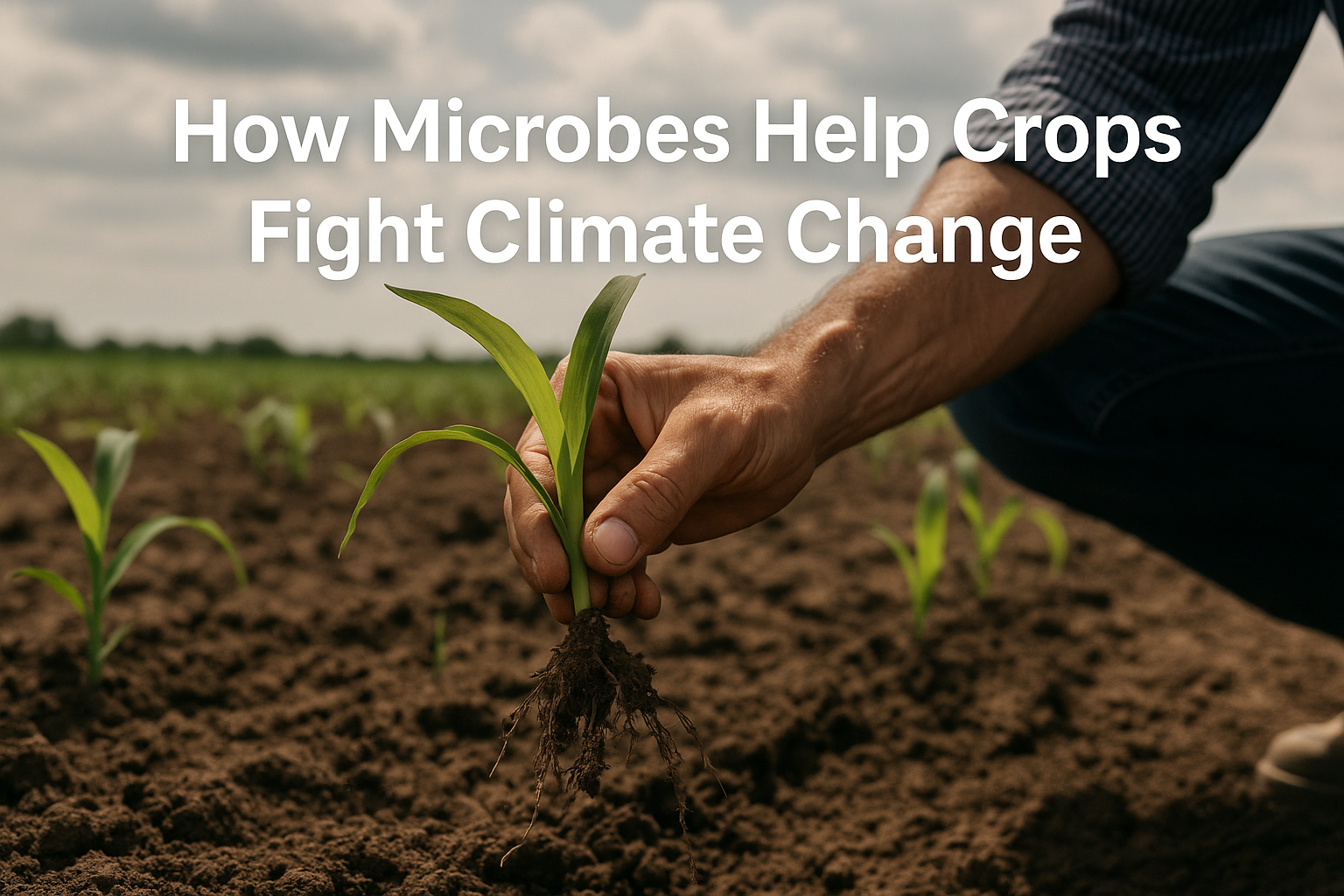
The change in climatic conditions raises challenges for global agriculture, which impacts food security, soil health, and crop yields. Rising temperatures, unpredictable rainfall, and increasing salinity are just a few of the stressors that challenge traditional farming systems. Amid these challenges, microbial consortia—communities of beneficial microorganisms—are evolving as a powerful tool to enhance crop resilience and support sustainable agriculture.
What are microbial consortia?
Microbial consortia are selected groups of microorganisms (bacteria, fungi, actinomycetes, etc.) that work with a coordinated approach to improve plant health and productivity. Unlike single-strain inoculants, consortia offer a more comprehensive and stable interaction with plants and soil, reflecting the complexity of natural ecosystems.
These microbial communities can be genetically engineered or naturally sourced, and they colonize the rhizosphere (the root zone), phyllosphere (the leaf surface), or even the endosphere (the internal tissues) of plants.
How Microbes Help Build Climate Resilience
1. Drought Tolerance
Some helpful microbes, such as AMF (arbuscular mycorrhizal fungi) and PGPR (plant growth-promoting rhizobacteria), help plants absorb water and nutrients from the soil.
They also produce natural substances that strengthen roots and help in water retention, allowing plants to survive more effectively during dry periods.
2. Heat Stress Management
When temperatures rise, certain microbes help plants by increasing their natural defense proteins and antioxidants, which protect them from heat damage.
Additionally, they enhance the plant’s absorption of vital minerals like iron and zinc, which are necessary for it to withstand heat stress.
3. Resistance to saltwater stress.
In salty soil, some salt-tolerant microbes reduce the amount of salt absorbed by the plant and help maintain a healthy mineral balance.
They also release enzymes that lower stress-related hormone levels and help in keeping the plant’s internal water balance, both of which contribute to the health of plants.
4. Carbon storage and soil fertility.
Microbes break down organic matter faster, trapping more carbon in the soil and improving its quality, which improves the availability of key nutrients such as nitrogen and phosphorus to plants, allowing crops to grow more efficiently and reducing the need for chemical fertilizers.
How Microbial Consortia Improve Farm Productivity and Environmental Health
- Reduced Chemical Inputs: Microbial consortia reduce the need for synthetic fertilizers and pesticides by improving nutrient availability and disease resistance.
- Increased Yields under Stress: Microbial consortia-treated crops grow more effectively in hot weather, drought, and saline irrigation.
- Restoration of Soil Health: By enhancing microbial diversity, aeration, and structure, these microbes restore degraded soils.
- Eco-friendly and sustainable: Microbial solutions are non-toxic, biodegradable, and consistent with organic farming practices.
Scientific Backing and Real-World Applications
Research from organizations such as the International Microbiome Consortium, FAO, and ICAR shows how microbial consortia are increasingly being used in horticultural crops, rice, wheat, and pulses. Field trials show that when these bioinoculants are used correctly, yield and stress tolerance improve by 20-40%.
Startups and agri-biotech firms are now creating crop-specific microbial blends that are tailored to different climate zones and soil types. This innovation is driving the next green revolution—microbial and regenerative.
- FAO Sourcebook on microbes in climate-smart agriculture:
Climate‑smart management of microorganisms and invertebrates - Frontiers study on maize in sub-humid India:
Microbial consortia enhance the yield of maize under sub-humid conditions - ICAR Bulletin – Microbe Technologies:
Microbe-Based Technologies Developed by ICAR
A key thought
As the climate changes and continues to impact agriculture through droughts, heatwaves, and soil salinity, farmers require long-term, science-based solutions by choosing the best biotech industry that develops advanced microbial consortia—powerful blends of beneficial microorganisms designed to help crops thrive in stressful environments while improving soil health and resilience.
FAQs
What are microbial consortia, and how do they help crops?
Microbial consortia are groups of beneficial microbes that improve plant health, increase nutrient uptake, and boost crop resilience to climate change.
How do microbes make crops more tolerant to drought and heat?
Beneficial microbes strengthen plant roots, increase water retention, and activate natural defense proteins, allowing crops to withstand heat and water scarcity.
Can microbial consortia reduce the need for chemical fertilizers?
Yes, they increase nutrient availability, restore soil fertility, and reduce the need for synthetic fertilizers and pesticides, making farming more sustainable.
Are microbial solutions effective in saline or degraded soils?
Salt-tolerant microbes help to regulate mineral balance, water uptake, and soil structure, allowing crops to thrive in saline or degraded soils.
What is the future of microbial consortia in sustainable agriculture?
With global research and agri-biotech innovations, microbial consortia are expected to be crucial in climate-smart farming and increasing food security.



